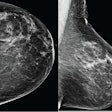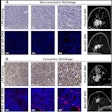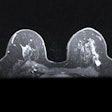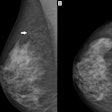Dear AuntMinnie Member,
A central argument held by skeptics of breast screening is that the so-called "harms" of mammography should be weighed against its benefits. Well, a new clinical study released this week indicates that one of those harms -- anxiety over false-positive findings -- maybe isn't so harmful after all.
Researchers analyzed data collected during the Digital Mammographic Imaging Screening Trial (DMIST) on the anxiety that women experienced after receiving a false-positive result on a mammography exam. They found that while anxiety levels did spike after a false positive, after one year these women had no statistically significant difference in anxiety levels than women without false-positive findings.
What's more, the study found that experiencing a false positive actually made women more likely to say they would undergo future breast cancer screening than those who received a negative mammogram.
The study confirms what many mammography backers have been saying all along: that the "harm" of a false-positive exam doesn't equate to the harm of a cancer that develops in a woman who was never screened. The question now is how the study's findings will shape the roiling debate over breast screening.
Read the story by clicking here, or visit our Women's Imaging Digital Community at women.auntminnie.com.
CCTA, BMI, and diabetes
In other news, visit our CT Digital Community for our coverage of a just-released study in Radiology that used coronary CT angiography (CCTA) to find a direct relationship between body mass index (BMI) and soft coronary plaque -- the type of plaque mostly likely to rupture -- in patients with diabetes.
In fact, the researchers said that high BMI levels had the same impact as age -- a one-unit increase in BMI had the same effect as a year of aging. And CCTA is uniquely suited to detecting the effect. Read more by clicking here.
While you're in the community, click here for a story on how CCTA plus stress CT myocardial perfusion imaging improves the evaluation of coronary artery stenosis in high-risk patients.
And check out the latest contribution from Ascendian Healthcare Consulting on filtering the noise from the message in the debate over radiation dose.


















